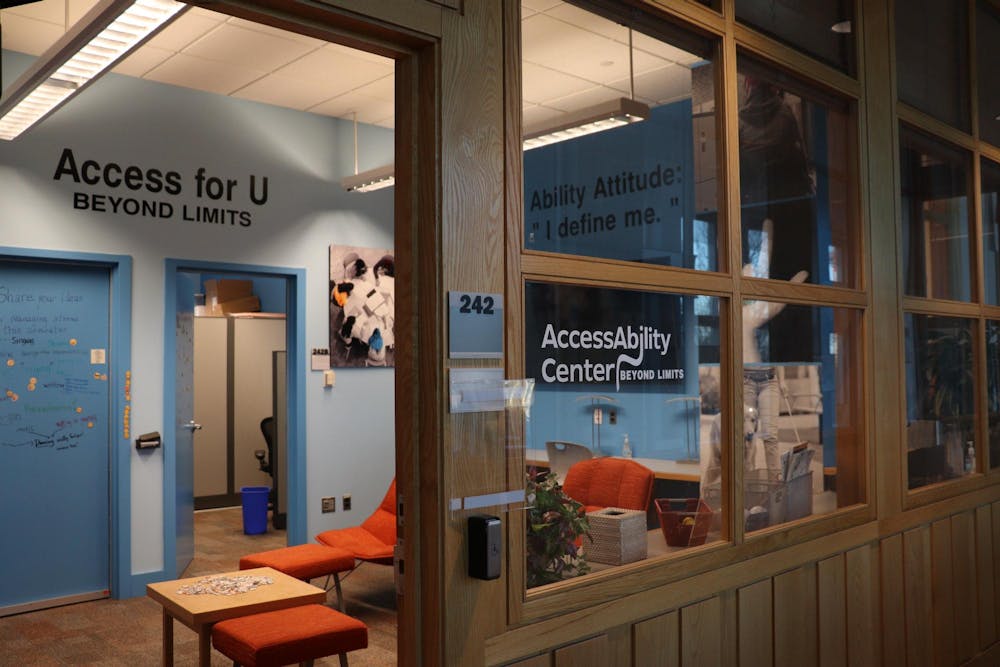As April marks Autism Awareness and Acceptance Month, the AccessAbility Center hosted its second-annual Sensory Fair on Wednesday, April 17. The event sought to help community members to “get a sense of what kind of sensory inputs there are and how heightened it is for individuals within the autism spectrum disorder,” Asha Nambiar, the Director of Accessibility and Disability Services, told The Daily Princetonian.
First opened in 2017, the AccessAbility Center seeks to “provide opportunities for students to actively explore differing abilities” and “envision disability as part of diversity,” according to its website. The center is currently housed in Frist Campus Center.
“Sensory difficulties are fairly common among individuals on the autism spectrum disorder,” Nambiar explained. According to the National Autistic Society, people with autism may experience hypersensitivity or hyposensitivity to sights, sounds, smells, tastes, touch, balance, and body awareness. The website adds that an overload of sensory information can lead to stress, anxiety, physical pain, or distressed behavior.
“All these sensory inputs play a massive role in making autism what it is,” Nambiar said.
“When you do see these individuals struggling with certain sensory inputs that we normalize on a day-to-day basis, just … remember that [sensory processing] works differently for different people,” she added.
Whitt Harper ’24, a fellow in the Office of Disability Services (ODS), told the ‘Prince’ that the event’s organizers wanted to “make people think about their senses in a way that allows them to connect” with people with autism or sensory processing disorders.
Attendees of the fair could make slime and glitter jars, visit seeing eye dogs, and play with bubble machines. The AccessAbility Center also raffled off a weighted blanket and handed out stress balls and “pop-it” toys. Food options included Rita’s Water Ice and cotton candy machines.
“We’re trying to bring in all the sensory inputs, within an academic setting, that humans can get access to,” Nambiar said.

“Everybody’s engaging with some senses differently,” Harper added. “By learning more about our senses, we can help understand and create acceptance and understanding for other people in which those processes are different.”
Beyond Autism Awareness and Acceptance month, Harper hoped the fair introduced more people to the AccessAbility center.
“Getting more and more people engaged with the center … creates a space on campus in which disability is real, disability is affinity, and disability is identity, and it's integral to our experience here.”
Caitlyn Tablada is a News contributor for the ‘Prince.’

Elisabeth Stewart is an assistant News editor for the ‘Prince.’
Please send corrections to corrections[at]dailyprincetonian.com.








